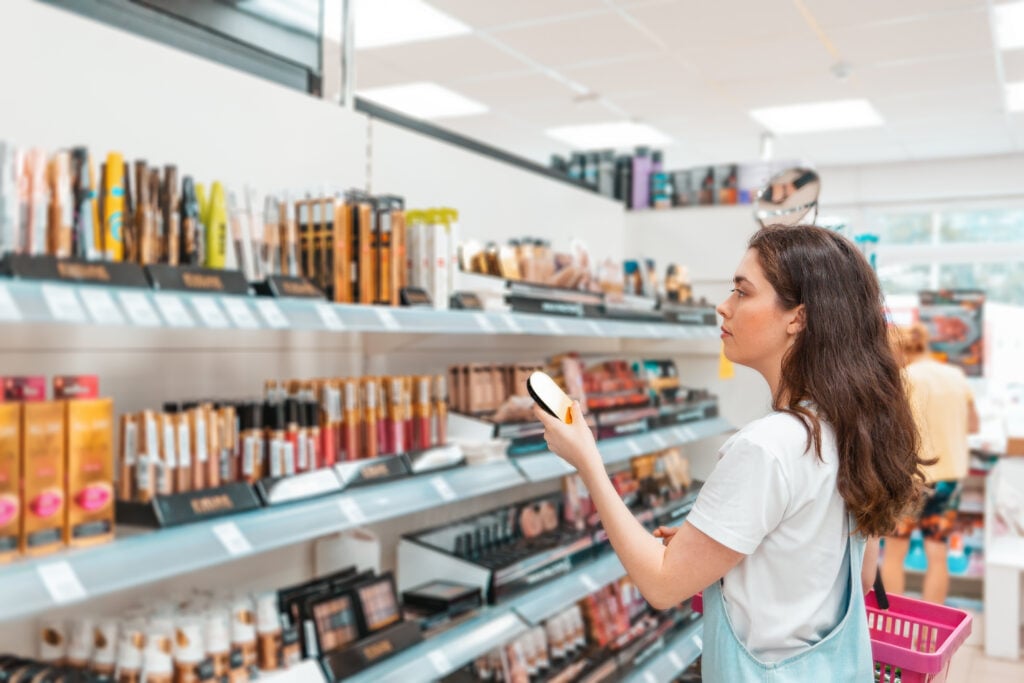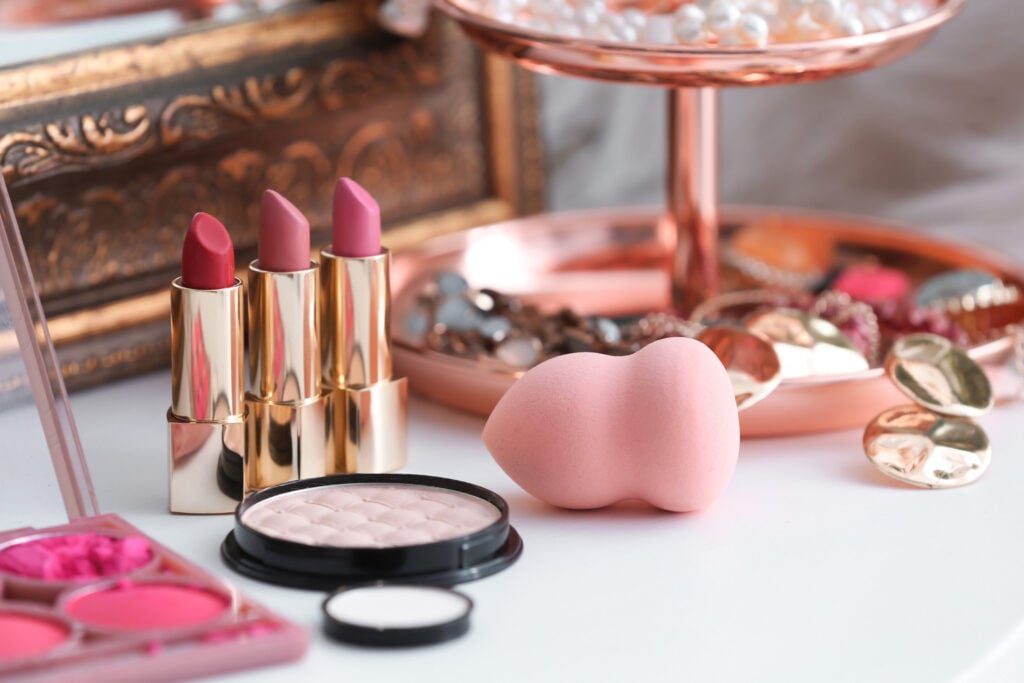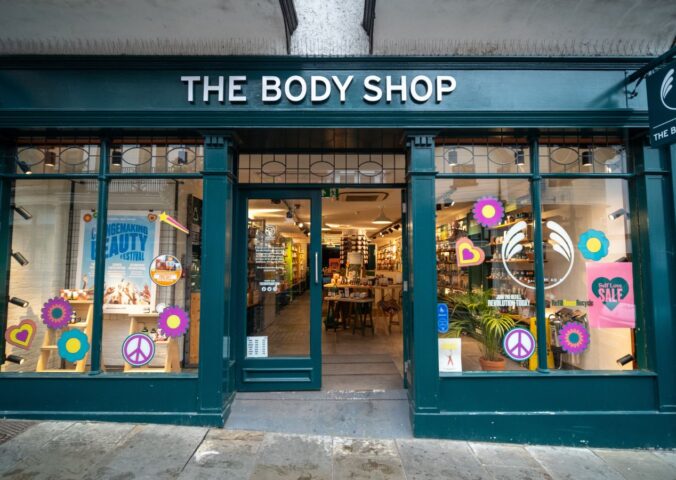Animal testing is not the only thing to look out for when buying vegan-friendly cosmetics, makeup, and skincare products. What’s used to make various beauty items can be complicated, with many non-vegan ingredients hiding in plain sight.
Going vegan is about more than just food, and shopping for suitable cosmetics can be a challenge. Without some prior knowledge, it can be difficult to know what is and isn’t vegan-friendly.
While many companies – including the likes of Kylie Cosmetics, Ariana Grande’s God Is A Woman, and Stella McCartney’s STELLA – are fully vegan, many brands offer just a few animal-free products.
Just to add to the confusion, some ingredients which can be derived from plants or animals have the same name – without the source identified (i.e. stearic acid). The only option here is to look up the manufacturer and see if it has gone into more detail on its website.
Below is a list of some of the most common animal ingredients, and their vegan alternatives.

Non-vegan ingredients in beauty products
1. Lanolin
This emollient is derived from sheep wool. It is a common ingredient in lip products (balms, sticks, glosses), as well as hair products.
It’s used to soften and moisturize. Synthetic (and plant-based) lanolin exists, but be wary of so-called “cruelty-free” lanolin, which may be still be derived from wool.
Alternatives include plant oils (i.e. coconut, olive) and butters (shea and coconut).
2. Shellac
A resinous product, obtained from lac bugs, shellac is used in nail products, as well as some hair lacquers. Shellac producers kill hundreds of thousands of these insects to create small amounts of this product.
3. Glycerine
This often comes from animal fats, and is commonly used in a range of products including soaps, hair care, makeup, and moisturizers. Some products use vegetable glycerin, which is suitable for vegans.
It can be derived from soy, coconut oil, or palm oil (which some vegans choose to avoid).
4. Casein aka sodium caseinate or caseinate
Casein – used in conditioning hair products and face treatments – is usually derived from cow’s milk, and is therefore a non-vegan ingredient. Some vegan alternatives are made from plant-based milks, and will usually be labeled as a vegetable protein.
5. Squalene
Squalene producers extract this chemical from shark liver oil. It is commonly used in lip balm, deodorants, and moisturizers, among other products.

It is considered a powerful ingredient with anti-ageing properties. Vegan squalene exists, and can be derived from olives and wheat germ. However, it is not always labeled as such, so you may have to do further research to establish whether it is plant-based.
6. Guanine
Created by scraping the scales off dead fish, guanine is sometimes used to make sparkly nail polish, eyeshadow, highlighters, bronzers, and blushes.
7. Oleic acid – aka oleyl stearate, oleyl oleate, or tallow
Companies use this animal fat as a softening and conditioning emollient in nail polish, soap, moisturizers, and makeup. Oleic acid can be plant-derived from a number of sources, including coconut, olives, and nuts. These forms may be labeled as vegan.
8. Animal hair
This can be found in brushes – even ones listed as “cruelty-free” – and is often sourced from fox, sable, horse, goat, mink, and squirrel.
Animal hair – particularly mink – is also sometimes used in false eyelashes. Synthetic options are available.

9. Stearic acid
Generally derived from pigs’ stomachs (as well as cows and sheep), stearic acid is often found in deodorant, soaps, hair products and moisturizers. A vegan alternative (also called stearic acid) can be derived from plant fats.
As well as being cruelty-free, the vegan version is also less likely to irritate the skin.
10. Carmine – aka cochineal, natural red 4, E120, and C.I. 75470
This red colorant, which is often used in lipsticks, blushes and nail polish, is derived from insects. The cochineals are crushed and the color is extracted, with tens of thousands of the creatures killed to produce mere grams of dye.
11. Collagen
Used in lots of anti-ageing products, as well as lip plumping items, this fibrous protein is derived from animal tissue, bone, skin, or ligaments – often from cows. The efficacy of collagen, in terms of whether it can even penetrate the skin, is questionable.
Plant-based alternatives include soy protein and almond oil.
12. Elastin
Often used in the same kind of products as collagen, elastin is also a protein extracted from the muscles, ligaments and aortas of animals. Vegan alternatives include hyaluronic acid and MSM.
13. Keratin
Keratin comes from the hair and horns of animals, and is often found in strengthening nail and hair products. Soy protein and almond oil are used as vegan alternatives.
14. Beeswax
Sometimes labeled as cera alba, this wax is often used in cosmetics to keep emulsions from separating into its oil and liquid components. Beauty brands use it in mascara too.
Alternatives exist in the form of plant and soy waxes.
—
This article was originally published on February 7, 2018. It was last updated on March 21, 2023.
If you buy something through a link on our site, Plant Based News may earn a commission, which helps us to provide our free services to millions of people each week.






